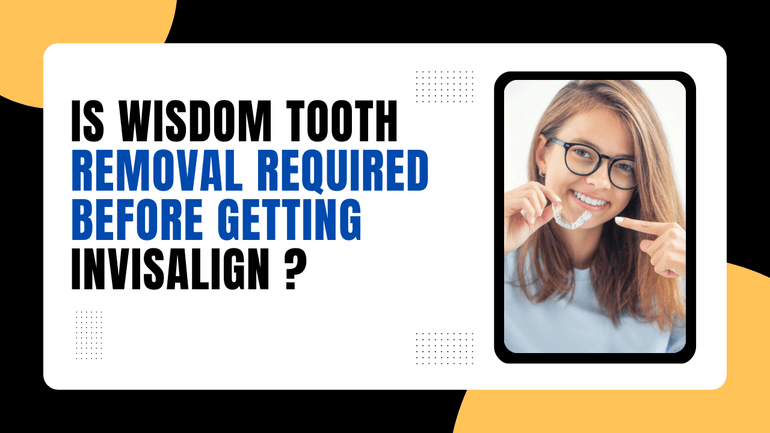Wisdom teeth are the last teeth to come in, usually during the teenage or young adult years. They can cause pain and crowding in a person's mouth because there is not enough room for them to come in straight. Most people don't need them anymore because of evolution, but genetics can affect whether or not you have them. A dentist can take an X-ray to determine if you have wisdom teeth.
What Are Invisalign Braces?
Invisalign braces are a type of clear braces that are made to fit your mouth specifically. They are created by an orthodontist who takes impressions and images of your teeth and uses computer technology to create aligners that will move your teeth into the desired positions. The aligners are then worn for a certain period to move your teeth into new positions gradually.
Clear aligners are a great alternative to metal braces. Invisalign is favored because it is comfortable to wear, can be easily taken off, is practically unnoticeable, brightens teeth as it straightens, and is simple to take care of.
Why Get Wisdom Teeth Removal
Removing wisdom teeth can help to maintain good oral health. Taking out the impacted teeth reduces the chances of bacteria accumulating on the back of your molars and causing decay. You also reduce the risk of developing tumors and cysts in your jawbone and the risk of infection and gum inflammation. Additionally, removing impacted wisdom teeth can prevent pain and may even eliminate the need for antibiotics.
Can You Get Invisalign If You Still Have Wisdom Teeth?
It is recommended for young adults who want to get Invisalign to get their wisdom teeth removed first to get the best results from the treatment. Failing to remove wisdom teeth before beginning Invisalign treatment can lead to disrupting the process and the need to stop and get the teeth extracted.
Here are reasons why you should extract impacted wisdom teeth before an Invisalign:
- Wisdom teeth are frequently positioned at the back of the second molars, making it difficult to fit them into an Invisalign plan. This may cause the treatment to be more lengthy and expensive than usual.
- Maintaining good oral hygiene can be difficult, especially if impacted teeth are present. Impacted teeth are teeth that are unable to break through the gums, so bacteria can easily build up in and around the teeth, potentially leading to oral health issues. If problems are detected, an NYC oral surgeon may need to be consulted to remove the impacted teeth and help prevent any further complications.
- As wisdom teeth grow, they press against the other teeth around them, causing damage to the second molars.
- The risk of infection is the chance of becoming sick if you get Invisalign braces before removing your wisdom teeth. This could lead to a slower treatment process which could delay the completion of your Invisalign treatment.
Conclusion
Wisdom tooth removal is not required before getting Invisalign. However, it is important to consider if you have overcrowding or other issues that may need to be addressed before beginning your Invisalign treatment. Your dentist can discuss the best treatment plan for your individual needs.
Additionally, if you experience any pain or discomfort associated with your wisdom teeth, you must visit the dentist to determine the best course of action. Ultimately, wisdom tooth removal is not required for Invisalign. Still, having an open dialogue with your dentist about any potential issues that may affect your treatment plan is important.
Emergency dentists at Dental House can help with your dental needs. Our dentists are experts at providing patients with a straight smile and perfect jaw alignment, ensuring that the underlying structures are healthy and perform the way they were designed. If you’re looking for a dental clinic offering Invisalign in Waterford, call us at (947) 999-9909.



